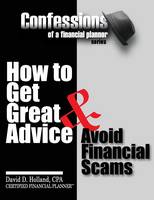Keeping your money safe Top tips for avoiding money scams
A money scam is where fraudsters trick you out of your money and/or personal information.
These scammers are not lucky or clever they are organised criminals who know that while you may be extremely savvy online, you are likely to be new to manging your money. Read on if you want to learn how to protect yourself.
Scammers have always been around. Many of us will have had poorly written emails or posts on social media asking us if we want a dream job or similar. However, during the pandemic, due to us moving our shopping and banking (and everything else) online, scamming increased significantly, and they also became far more sophisticated. It is important you learn how to recognise some of the tell-tale signs of a scam quickly. Also be aware that student related scams tend to increase when they know you will have money, so at the same time as your student finance payments.
The main things to be aware of are: -
- If it seems too good to be true it is likely to not be genuine.
- Your bank (or student finance) will never email or call you to ask for your bank details or PIN number.
- HMRC will not text you randomly to ask for your bank details.
- Your bank will never ask to access your laptop or phone - never give remote access to your computer to anyone.
- Your bank will never call you to ask you to move your money to a 'safe' account.
Here are some of the current top scams targeted at students and some tips on how to protect yourself.
Job and internship scams
Job scammers often target students as they know you will probably be on the look out for a job that will fit around your studies. They may approach you on social media or by text or email offering easy money or a dream job. Be wary of job offers when you have not even applied for a job or had an interview. The scam may be that you pay money upfront for a uniform or kit for a job that doesn't exist. They may also pressure you by saying you only have a short time, such as a few hours, to pay the money or lose the job opportunity.
These scams also work by taking personal information from you that they can use for ID fraud (so a copy of your passport and bank details for example). You can check if a company is real on gov.uk.
Accommodation scams
In your first year at university, you are likely to live in halls or university owned accommodation. However, in your second or third year you may have to (or want to) look elsewhere. Scammers may advertise property that doesn't exist or if it does exist, they may 'rent it' to many students asking everyone for a deposit.
- To protect yourself try and use a legitimate and recommended letting agent, your university will be able to advise you about this.
- Never transfer money by Western Union or pay a cash deposit.
- Always pay by bank transfer/direct debit.
- Never pay for a viewing - this is not the sign of a good landlord.
- You should have a copy of the contract and safety certificates before you hand over any money.
- Make sure you view a property in person if you can (or get a trusted friend to do it for you).
Phishing, Smishing and Vishing
Most people have heard of phishing but the other electronic ways of approaching students and scamming you from your money are just as common.
- Phishing - these are emails that contain bogus links to get your details from you. They may look like they come from your bank or university.
- Smishing - these are texts that try to get your bank details or other personal information from you. Most of us have now had the text about 'unable to deliver your parcel'.
- Vishing - these are done via the phone and tend to be someone calling you pretending to be your bank or the police asking you to move money or give them access to a device.
If someone calls you saying they are your bank then just say you will call them back and ring the number on the back of your debit card.
Money mules
A money mule is when you allow someone else to use your bank account to pay money in and then you transfer this money elsewhere keeping some of the money for your help. This maybe someone you have met briefly at university or work who may say they are being paid in cash but don't want to get into trouble with HMRC. Or someone you don't know such as being approached on social media saying that you can make quick and easy money by 'commission'. In a nutshell criminals use money mules to launder (or clean) their money.
If someone approaches you in person you may feel too embarrassed to say no. You may prefer to respond with something like 'I would help you but I am having trouble with my own bank' or similar. Remember being a money mule is a crime and can carry a prison sentence.
What to do if you have been scammed
It is important you speak to your bank and report it, even if you think it is only a small amount of money or you feel too embarrassed. By reporting the scam you will save others from the same experience.
The best way to report a scam is by contacting Action Fraud through their reporting tool or by phone at 0300 123 2040 (in England & Wales).
It is also a good idea to talk to someone in your university as if it has happened to you it is likely others will be approached. Staff in student support or your student union will be able to help you with advice and guidance.
Sources
gov.uk
check information about a company to see if they are real
citizensadvice.org.uk
Citizens Advice is a trusted source with some really useful information about scams
actionfraud.police.uk
gives information on what to look out for and how to protect yourself.

Tags
#money-matters
#scams
More articles in this category:
- Understanding and managing your debts where to go if you need help.
- Managing Your Personal Finances
- Budgeting
University of Wolverhampton, Student Support
For more information and support on this topic from the University of Wolverhampton - please click here
Suggested reading
Confessions of a Financial Planner: How to Get Great Advice & Avoid Financial Scams
Paperback
Holland, Assistant Professor of History David (University...
£8.32
View

